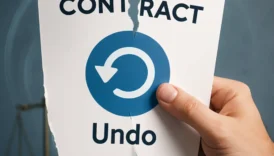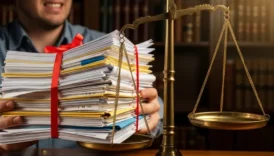Legal Escheat Definition and Meaning

- Legal Escheat Definition and Meaning
- What Is Legal Escheat?
- Legal Basis
- Examples
- Why Legal Escheat Matters
- FAQs About Legal Escheat
- What types of property are subject to escheat?
- How long does property remain unclaimed before escheat occurs?
- Can heirs reclaim property after it escheats to the state?
- Why do states benefit from escheat laws?
- How can individuals avoid property escheating to the state?
What Is Legal Escheat?
Simple definition of legal escheat: it is a legal process where unclaimed or abandoned property reverts to the state when no rightful heir or owner can be identified. In legal terms, escheat ensures that property does not remain ownerless and that the state takes custody until a legitimate claim is made.
Legal Basis
Escheat laws are rooted in state statutes and common law principles. Historically, governments claimed property to prevent it from being abandoned indefinitely. Today, every U.S. state has escheat statutes, often referred to as unclaimed property laws.
Courts enforce these laws to balance the interests of individuals and the state. The process requires due diligence, such as notifying potential heirs, before property permanently reverts to state custody.
Examples
Legal escheat applies in various contexts where property goes unclaimed. Common examples include:
- Unclaimed Bank Accounts
- If a bank account has no activity for several years and the owner cannot be located, the funds may escheat to the state treasury.
- Real Estate Without Heirs
- When someone dies without a will or heirs, their real property may transfer to the state through escheat.
- Uncashed Checks
- Payroll checks or refunds left uncashed after a statutory period are often subject to escheat.
- Insurance Proceeds
- Life insurance benefits unclaimed by beneficiaries may eventually escheat to the state.
- Safe Deposit Box Contents
- Items left in a safe deposit box without contact from the owner can be seized and held by the state as unclaimed property.
Why Legal Escheat Matters
Escheat matters because it prevents property from remaining in limbo without ownership. By transferring unclaimed assets to the state, the law ensures proper stewardship until a rightful owner appears.
This process also encourages accountability from financial institutions, requiring them to report and transfer unclaimed property. For citizens, escheat laws create opportunities to reclaim forgotten or unknown assets through state unclaimed property programs. Ultimately, escheat promotes fairness, stability, and efficient management of assets.
FAQs About Legal Escheat
What types of property are subject to escheat?
Escheat can apply to bank accounts, real estate, stocks, uncashed checks, insurance proceeds, and even safe deposit box contents. Each state defines the specific property types covered under its unclaimed property statutes.
How long does property remain unclaimed before escheat occurs?
The time frame varies by state and property type, typically ranging from 1 to 5 years of inactivity. After this dormancy period, institutions must report the property to the state. Owners can still claim assets later by proving rightful ownership.
Can heirs reclaim property after it escheats to the state?
Yes, heirs or rightful owners may reclaim property even after escheat, provided they show valid proof. States maintain unclaimed property offices to handle such claims. However, strict documentation is often required to establish eligibility.
Why do states benefit from escheat laws?
Escheat allows states to use unclaimed funds for public benefit while maintaining responsibility to return assets to rightful owners. This prevents assets from being lost, wasted, or mismanaged, and ensures continued oversight. States also gain interest from holding such funds temporarily.
How can individuals avoid property escheating to the state?
People can avoid escheat by keeping accounts active, cashing checks promptly, updating contact information with financial institutions, and creating a valid will. Regularly monitoring financial records ensures property remains under rightful control.






